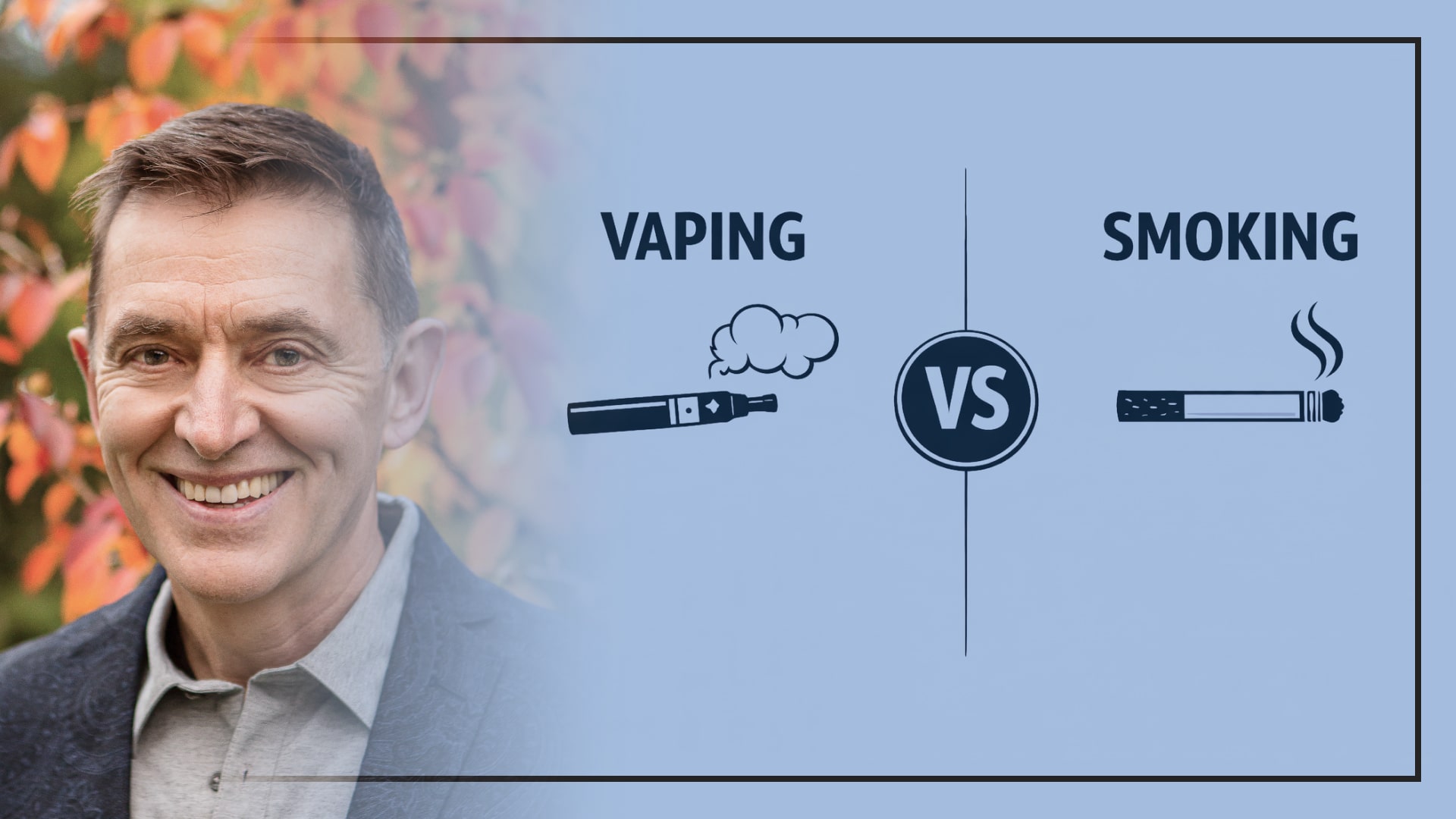
The year in snus 2022: ‘The best one in a long time’
From updated legislation on nicotine products to the emergence of two smoke-free generations in Sweden, the year in snus 2022 has been an eventful one, says Patrik Strömer, Secretary General of the Association of Swedish Snus Manufacturers.
How would you sum up the year in snus 2022?
I’d have to say it’s been the best one in a long time! Sweden now has TWO smoke-free generations: the youngest age group up to 29 years old, as well as those aged 30–44. According to the latest statistics, only 5.6 percent of Swedes are daily smokers – the lowest smoking rate in the entire EU and about half that of the second-best country!
Sweden’s parliament also passed new legislation covering nicotine products such as nicotine portions and vaping. It includes age limits, warning texts, and an ingredients list – all things we in the industry have wanted to have in place for years. It’s gratifying that Sweden now has these fundamental regulations in place.
Do you think people are more willing to view snus as something different from cigarettes?
Politically no, but among the Swedish people, yes. It’s frustrating to live in a democracy where a parliament can take a clear decision, but where the government avoids taking action based on parliament’s wishes. There is a clear majority who subscribe to the research showing the different risks of cigarettes and snus, but many politicians are still stuck in the old misconceptions that it’s nicotine that’s dangerous, not the smoke from cigarettes. And it’s hard for people to admit it when they’re wrong.
Snusforumet has reported on several international studies pointing to the benefits of harm reduction. What more is needed?
I really don’t know. Facts are clearly not enough. And since opponents of what they call the “Tobacco Industry” refuse to engage in actual dialogue and even actively boycott scientific discussions, it’s basically impossible to reach an understanding with these people. I think more consumers who have quit smoking need to tell the story of their journeys to becoming smoke-free. And tax money shouldn’t go to organisations that actively counter scientific evidence.
Do you think the public outcry over the possibility that the EU might raise taxes on snus might get the government to take a stand and defend snus in Brussels?
I’m convinced the EU won’t end up proposing a tax increase on snus. If it does, it will further damage the EU’s credibility. Of course, we don’t really know if the Commission wants a drastic hike in the excise duty on nicotine pouches. But if such a proposal exists, it wouldn’t serve the interests of European public health and hit hard against Swedish policy, which has thus far been quite successful. So I hope the Swedish government vetoes any such misconceived proposal that lacks any scientific basis.
What are your thoughts on the support for Swedish snus that emerged in the wake of media reports about the leaked EU proposal?
Basically, lots of Swedes are proud that the country has a long tradition of snus, and most people know that snus is the reason for Sweden’s low smoking rates. Under normal circumstances, there is no pressing threat to snus in Sweden, but when EU bureaucrats get carried away and stick their hands into matters they have nothing to do with, people react. Snus is a symbol for Sweden, but the problem of political overreach knows no boundaries.
Sweden will hold the six-month rotating EU Presidency starting in January 2023. How might this help Sweden draw attention to the advantages of Swedish snus?
It’s usually difficult to promote one’s own policies when holding the EU Presidency. But it would make a huge difference if Swedish government representatives said that the only country in the EU where snus is allowed and where nicotine pouches are now also regulated is also the EU country with the lowest percentage of smokers.
What are your expectations for how the Tobacco Products Directive might be handled during Sweden’s EU presidency?
I don’t think real work on the Tobacco Products Directive will start in the first half of 2023. However, the proposal for harmonisation of tobacco taxes could land in the lap of the Swedish government. If there is a reasonable process, the Commission can be influenced by the Swedish debate and elect to study public health data and actual results rather than push for unrealistic, idealistically-driven proposals. We’ll just have to wait and see what happens.
The debate has also heated up around nicotine pouches. What is the biggest misconception about nicotine portions right now?
Hard to say what the biggest misconception is when there are so many. But one that’s clearly wrong is the misconception that they would act as a gateway to smoking. Snus and nicotine pouches both offer pathways out of smoking or at the very least are dead ends. This whole notion that something is a “gateway” comes from those who don’t understand the difference between correlation and causation. The fact that almost everyone involved in car accidents cycled as a child does not say anything about the possible risks of cycling or that there is a direct causal relationship.
Another misconception is that a product that has an age limit of 18 and can only be sold to adults has children as its target market. Only someone who is stuck in their own twisted fantasies can claim something so ridiculous.
I don’t know whether it’s a misconception or just plain ignorance, but very few who campaign against nicotine pouches seem to realise that Sweden now has two smoke-free generations thanks to smokeless nicotine products. Previously, women smoked more than men in Sweden, which was unique for the EU. But now women’s smoking has decreased to the level of men, while more women are using nicotine pouches. How clueless do you have to be to not see the connection? Smokeless nicotine products replace cigarettes. It’s blindingly obvious.
What are your thoughts on the lack of research on the connection between the availability of snus in Sweden and the fact that the country has the lowest tobacco-related mortality in Europe?
There is an interest in doing research on snus. You should see all the low-quality studies I’ve read that really, really want to find some statistical connection between snus and diseases. Which makes it really confounding to me that no researcher anywhere has wanted to give an explanation for Sweden’s remarkably low smoking rates. When I put the question to ordinary people, the answer is always “snus”. Yet no scientist seems able to perform research to confirm this.
At the same time, there is a lot of evidence that nicotine can alleviate symptoms from diseases such as Alzheimer’s, Parkinson’s, and MS, but it is of course controversial to explore whether nicotine itself can help with certain diseases and not just that smokeless nicotine products can be a better way for adult consumers to enjoy its effects compared with smoking.
Maybe they’re worried about future research grants, or maybe they are afraid of being associated with the “tobacco industry”. But if researchers don’t think independently and curiously and aren’t motivated to find out the truth, then what’s the point of research?
Besides the Swedish EU Presidency, what else is on the snus agenda for 2023?
Most exciting will be if next year’s Swedish public health report shows that Sweden has fully achieved its status as a smoke-free country according to the WHO definition. Unfortunately, news of this public health success is often overshadowed by misleading campaigns and a misguided focus on the increasing use of new nicotine products. It’s not unthinkable that the successes we’ve seen in Sweden in recent years could be stopped or reversed thanks to fearmongering about the supposed dangers of nicotine rather than celebrating Sweden’s success on the pathway to being a smoke-free country.
More broadly, I hope that more politicians everywhere will come to the conclusion that public health shouldn’t be based on prejudice and moralism but rather on medical science. And thus also the logical conclusion that taxes on snus must be reduced..
What are the three most important aspects of tobacco and snus policy that Snusforumet readers should be tracking in 2023?
What’s the EU doing, what’s the WHO and its subsidiaries doing, and what is Sweden doing? If everyone gets it wrong, there’s a risk that global smoking prevalence will continue at current levels. But if everyone does the right thing, hopefully we’ll have a world with fewer smokers.




